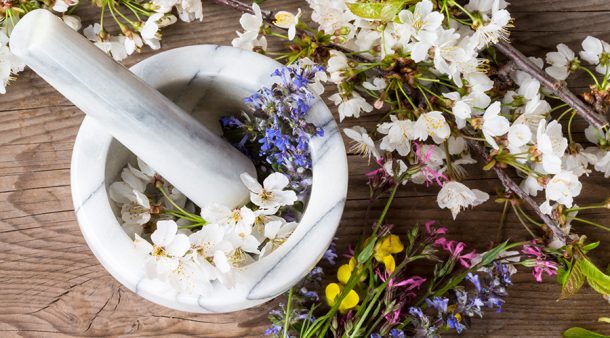
Ulcerative Colitis: A Holistic Approach to Healing the Gut
Ulcerative colitis (UC) is a chronic inflammatory condition that affects the large intestine, leading to inflammation and ulceration of the colon’s inner lining. Unlike Crohn’s disease, UC does not affect the full thickness of the intestinal wall and is confined to the large intestine. This condition typically results in symptoms such as bloody diarrhea, abdominal cramps, fever, and sometimes severe pain. While the exact cause remains unclear, it is often linked to a combination of genetic, dietary, and environmental factors.
Symptoms of Ulcerative Colitis
Patients with UC often experience diarrhea, abdominal cramps, fatigue, and peri-anal irritation. Weight loss and reduced appetite are common, particularly during disease flare-ups. Long-term complications can include anemia and nutrient deficiencies due to chronic blood loss and impaired absorption.
Diet for Ulcerative Colitis
A Western diet high in processed foods may increase the risk of developing UC. For those managing the condition, dietary changes can make a significant difference:
- Limit Irritants: Avoid refined sugar, alcohol, caffeine, and raw fruits and vegetables that can irritate the intestinal lining.
- Elimination Diet: Identify and remove food allergens, especially dairy, wheat gluten, eggs, and white flour.
- Anti-Inflammatory Foods: Incorporate green and yellow vegetables, gently cooked animal proteins, and omega-3-rich fish to support anti-inflammatory processes.
- Easily Digestible Foods: Choose foods that are easy to digest, as UC is associated with low pancreatic enzyme secretion. Supplementation with enzymes like Bromelain can aid digestion and reduce inflammation.
Chinese Element Theory, Emotions, and Chakras
In Traditional Chinese Medicine (TCM), the large intestine is associated with the Metal element, which also governs the lungs. An imbalance in this element can manifest as grief and an inability to let go, which can affect the digestive system. Emotionally, the large intestine is connected to the process of releasing and purging. When emotions such as sadness or unresolved grief persist, they can contribute to digestive disturbances, including UC.
The Solar Plexus Chakra (Manipura) governs the digestive system and is linked to personal power, control, and self-esteem. Blockages in this chakra can result in digestive issues, including inflammation and ulceration in the intestines. Healing practices that balance the Solar Plexus Chakra, such as yoga, meditation, and breathwork, can support emotional and digestive health.
Risks and Complications
UC affects approximately 1-2 million Americans, with men and women equally at risk. The condition can lead to severe complications like osteoporosis due to chronic nutrient loss. Additionally, UC increases the risk of colon cancer, making long-term management essential.
Natural Therapies and Supplements for Ulcerative Colitis
While conventional treatments focus on reducing inflammation, naturopathic approaches aim to heal the gut lining, manage inflammation, and support overall health.
- Probiotics: UC patients often have reduced beneficial bacteria in the gut. Probiotics, such as Lactobacillus and Bifidobacteria, can help restore gut flora balance, reduce inflammation, and strengthen the intestinal lining. Dosage: 1-2 capsules between meals 3-4 times daily.
- Essential Fatty Acids (EFAs): Omega-3 fatty acids, particularly DHA, possess anti-inflammatory properties that can benefit UC patients. Dosage: 4-8 capsules daily (4-10 grams) to reduce inflammation and improve intestinal lubrication.
- Boswellia and Curcumin: These COX-2 anti-inflammatory herbs can help manage inflammation in UC. Curcumin, in particular, has shown promise in maintaining remission in UC patients. Dosage: Boswellia up to 900 mg daily; Curcumin 1,000 mg after breakfast and dinner.
- Aloe Vera Gel: Aloe vera juice can soothe the mucous membrane lining of the intestines and support overall digestion. However, it should be avoided during episodes of diarrhea due to its laxative effect. Dosage: 1-2 tablespoons once or twice daily.
- Magnesium: Magnesium deficiency is common in UC due to malabsorption. Supplementation can relax the stomach and gastrointestinal muscles, reducing disease severity. Dosage: 400-800 mg daily.
- Melatonin: This hormone, found in high concentrations in the GI tract, may provide relief for UC symptoms. It supports the gut’s healing processes and can regulate inflammation. Dosage: Higher doses may be necessary; consult a qualified practitioner.
Traditional Chinese Medicine (TCM) and Acupuncture for UC
In TCM, acupuncture points along the Large Intestine and Stomach meridians can help alleviate symptoms by promoting the flow of Qi and reducing inflammation. Acupuncture can also address the emotional aspects tied to UC, such as grief and emotional stagnation, by harmonizing the Metal element and restoring balance to the body’s energetic systems.
Conclusion
Ulcerative colitis is a multifaceted condition influenced by genetic, dietary, environmental, and emotional factors. A holistic approach that includes dietary adjustments, supplements, emotional healing, and practices from TCM and energy medicine can help manage symptoms and support gut health. By understanding the interconnectedness of body, mind, and spirit, individuals with UC can take proactive steps toward long-term remission and improved quality of life.


